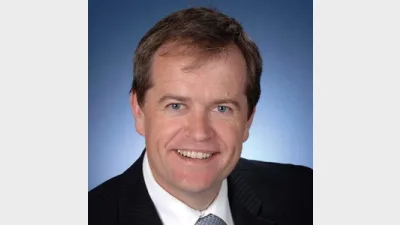Why legally enshrining ‘financial planner/adviser’ is a necessary step



Mike Taylor writes that legally enshrining the term ‘financial planner/adviser’ is a necessary step towards creating a barrier to the industry being tarnished by spivs and carpet-baggers.
Few Australian financial planners are likely to remember the Minister for Financial Services, Bill Shorten, with any fondness, but if his only legacy to the financial planning industry is the legal enshrinement of the term ‘financial planner/adviser’ then his term in the portfolio will have had at least some merit.
The Financial Planning Association (FPA) should also take a bow. Despite some criticisms of the way in which the organisation conducted itself through the final stages of the negotiations around the Future of Financial Advice (FOFA) changes, legislation restricting the use of the term ‘financial planner/adviser’ will have lasting benefits for an industry that wants to become a profession.
The chief executive of the FPA, Mark Rantall, deserves particular plaudits for having prosecuted the case for such legislation with such zeal.
There are those, including the Federal Opposition, who have indicated that such legislation is not necessary because, in fact, the use of terms such as ‘accountant’ are not similarly enshrined in law, but this overlooks the history of the financial planning industry and the tendency of the media and others to apply the term ‘financial planner’ to almost anyone from a credit card salesman to a property spruiker.
It is an unfortunate fact of life that many a spiv has described him/herself as a ‘financial planner’ and many a journalist has readily applied that descriptor irrespective of the reality.
Announcing the introduction of the necessary legislation, Shorten said: "This measure will ensure that only persons authorised to give personal financial advice to retail clients can hold themselves out to be a ‘financial adviser’ and ‘financial planner’ (or use terms of like meaning)."
Notwithstanding the hard work put in by the FPA in prosecuting its case for the legislation, it is appropriate that the bills to be introduced to the Parliament do not convey any particular advantages to specific organisations such as the FPA. Indeed, this approach has ensured that the legislation has already earned broad stakeholder support.
The FPA has signaled that it will continue to press for the legislation to be extended to restrict the use of the term ‘financial planner/adviser’ to those who are members of organisations such as the FPA and therefore adhere to an approved code of conduct.
This would likely be a step too far and give rise to perceptions of a "closed shop". The FPA already has control of the Certified Financial Planning (CFP) designation in Australia which requires CFPs to be members of the FPA.
A more appropriate approach might be, eventually, to link the use of the term ‘financial planner/adviser’ to those holding the appropriate tertiary qualifications.
It was also appropriate that, on the same day as announcing the legislation restricting the use of the term ‘financial planner/adviser’, Shorten should announce the regulatory outline of the new conditional Australian Financial Services Licence regime replacing the accountants' exemption.
The draft regulations are being closely examined by both the financial planning and accounting industries but, at first blush, they appear to reflect a workable solution which will enable accountants to provide limited advice on a range of issues.
According to Shorten, in addition to being able to advise on self-managed superannuation funds and superannuation generally, accountants/licence holders will be able to give ‘class of product advice’ on basic deposit products, general and life insurance, securities, and simple managed investment schemes.
As well, the Minister said the regulations provided for streamlined experience requirements for accountants who hold a practicing certificate issued by one of the professional accounting bodies (the Institute of Chartered Accountants in Australia, CPA Australia Ltd and the Institute of Public Accountants); and an exemption from the audit requirements for limited licence holders who do not handle client money and instead submit an annual compliance certificate.
When Parliament resumes in 2013, the number of sitting days during which the Government's legislation can be debated will be limited both by higher priority policy issues and the reality that a Federal Election is likely to be held within nine or 10 months.
If the financial planning industry wishes to ensure that the legal enshrinement of the term ‘financial planner/adviser’ actually comes to fruition in a busy political year, then it will need to combine to show a united front.
It is an objective worth fighting for.
Recommended for you
In this episode of Relative Return Insider, host Keith Ford and AMP chief economist Shane Oliver discuss the latest shock consumer price index numbers, which rose to 3.8 per cent in October, as well as the shifting US market and calls for super funds to invest in infrastructure projects.
In this episode of Relative Return Insider, host Keith Ford and AMP chief economist Shane Oliver discuss the Reserve Bank of Australia’s cautious stance in response to persistent inflation, subdued growth prospects, and political shifts affecting the nation’s journey towards net zero emissions.
In this episode of Relative Return, host Laura Dew speaks with Rachel White, head of financial adviser services at Vanguard about how advisers can help Australians to feel confident in retirement.
In this episode of Relative Return Insider, host Keith Ford and AMP deputy chief economist Diana Mousina take a look at the Reserve Bank’s unanimous decision to leave rates on hold on Melbourne Cup Day and whether future cuts are still on the cards.








